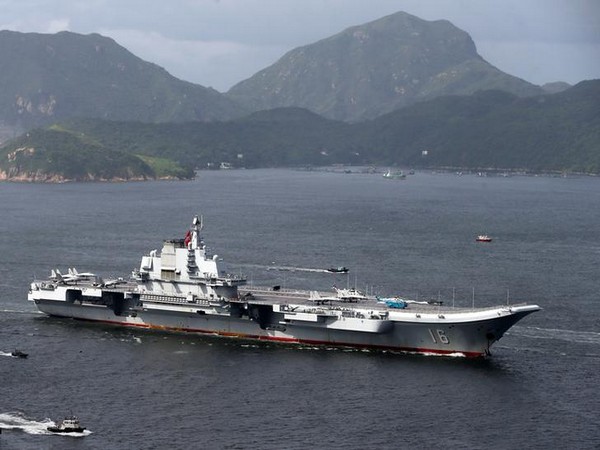Headline: Philippines Enacts New Maritime Laws Amid South China Sea Tensions
On November 15, 2023, the Philippines under President Ferdinand Marcos Jr. took significant steps to bolster its sovereignty in the South China Sea by enacting two critical maritime laws: the Philippine Maritime Zones Act and the Philippine Archipelagic Sea Lanes Act. These laws aim to reinforce the nation’s legal standing in ongoing territorial disputes with China, establishing specific routes over its waters and airspace, thus signifying a strategic maneuver in an increasingly contested region.
Defining the Maritime Landscape
Who: The newly enacted laws have been introduced by President Ferdinand Marcos Jr. and his administration, with insights from legal and maritime experts such as Raymond Powell from Stanford University.
What: The Philippine Maritime Zones Act focuses on the establishment of archipelagic sea lanes, while the Philippine Archipelagic Sea Lanes Act designates specific routes for navigation and air traffic, aspiring to affirm the Philippines’ maritime zones in accordance with the United Nations Convention on the Law of the Sea (UNCLOS).
When: Both laws were enacted on November 15, 2023, amidst escalating tensions in the region.
Where: These maritime regulations are vital for the Philippines, particularly concerning important areas like the West Philippine Sea, which has been a flashpoint in disputes with China.
Why: The Philippines aims to challenge China’s assertive claims over vast stretches of the South China Sea, where Beijing has engaged in aggressive military and strategic actions to reinforce its jurisdiction, often dismissing international legal rulings.
How: By grounding the laws in UNCLOS criteria, the Philippines is leveraging legal frameworks and diplomatic efforts—a strategy often termed "lawfare"—to contest China’s advantages in maritime control.
A Strategic Response to China’s Aggression
Raymond Powell emphasizes that these laws serve as a fundamental development in the Philippines’ strategic toolkit for countering China’s maritime aggression. He asserts that such legal frameworks are essential for reclaiming rights over crucial features like the Scarborough Shoal and the Second Thomas Shoal, areas currently claimed by Beijing under its expansive nine-dash line.
In response, China has vehemently opposed these laws, labeling them a "serious violation" of its supposed territorial integrity. The Chinese government has protested by summoning the Philippine ambassador and accusing Manila of unilateral actions that threaten regional stability.
Regional Implications and International Reactions
While the laws have drawn sharp objections from China, Malaysia has also voiced concerns, claiming that the Philippine Maritime Zones Act infringes on its territorial claims near Sabah on Borneo Island. However, it is China’s military posturing that represents the most pressing challenge to the Philippines’ interests, with ongoing actions aimed at consolidating its control over disputed waters.
Maritime expert Jay Batongbacal notes that China’s backlash against the Philippines’ maritime laws is rooted in its desire to maintain supremacy over vital sea lanes, essential for its military and economic strategies. The recent Chinese drawing of new baselines around Scarborough Shoal further escalates tensions, as international law regards the feature as not subject to territorial claims.
Strengthening Alliances: The U.S.-Philippines Connection
The Philippines’ assertive legal stance comes at a time when the nation has been strengthening its partnership with the United States. Since President Marcos assumed office in 2022, there has been a notable pivot back towards Washington, contrasting the previous administration’s distancing. The two countries have resumed joint naval exercises, with the U.S. expected to provide advanced military technology to enhance Philippine defense capabilities.
However, the upcoming transition to a new U.S. administration under President-elect Donald Trump raises questions about the future of this alliance. Vincent Kyle Parada, a former defense analyst with the Philippines Navy, underscores the importance for Marcos to diplomatically engage Trump to maintain the strategic value of the Philippines in the Indo-Pacific region.
The Future of Maritime Sovereignty
Experts like Zachary Abuza from the National War College assert that while the new maritime laws may not change immediate realities on the ground, they significantly improve the Philippines’ leverage to challenge China’s territorial claims. The enactment also paves the way for a structured approach to safeguard Philippine sovereignty, painting a potentially brighter picture for future negotiations.
The Philippines’ determination to counter China’s growing assertiveness signals a commitment to protecting national interests in the highly contested South China Sea. As tensions mount, the growing complexity of maritime law and regional politics invites thoughtful engagement among stakeholders, ensuring that the dialogue remains crucial for peace and stability in the region.
We want to hear your thoughts! How do you think the new maritime laws will affect the Philippines’ relations with China and other neighboring countries? Share your comments below.
For further reading, consider exploring this article on sea navigation rights and this analysis of international maritime laws.
Note: This article has been published without modifications to the original text and may not have undergone editorial review.


